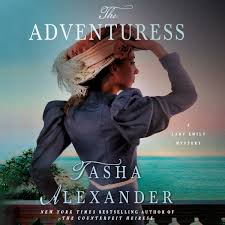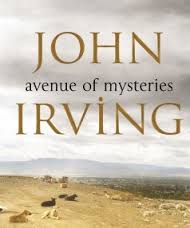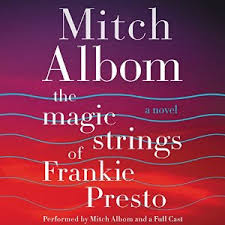Ordinary People Are Just Plain Boring
I want to talk a little about the introduction of your protagonist. The opening of your book presents a key moment that gives a first glimpse or impression of your main character. You know what they say about first impressions—they tend to stick with you and are hard to erase. If someone rubs you the wrong way when you meet them, it’s sometimes hard to get past that initial feeling. It almost feels a bit embedded in concrete. So it is with your characters as they walk upon the stage of your novel. If you’re at a party and you meet someone dull and completely unappealing, you’re not likely to pay much attention to them from that point on. So too with your characters. You don’t want them to come across boring. Of course, if you need a character to be a bore, make them an interesting one. The key always is to make your characters a bit larger than life. But, I don’t want to go off on tangents into character development. There will be time for that in future posts.
“Average and Ordinary” Is Just Plain Boring
So, you’re thinking you want your protagonist to be an average “everyman” type of guy—that way the reader will be able to relate to him, right? Wrong. Who wants to read about uninteresting average people? No one. Sure, we want to be able to relate in some ways with your protagonist, but we are reading to be engaged, entertained, enthralled. And a boring, flat character is not going to incite those feelings in us.
So, just how do you create a sympathetic, intriguing character and be able to get the reader to care about her on the first page? It takes some planning and thinking ahead to pull this off. And believe me, a lot of readers are going to lose interest by page three if you haven’t given them a good reason to care. That’s why we put our protagonists in a present-action situation that allows us to reveal a bit about the heart of our character. As discussed in previous posts, we have to point out the visible goal of the character right away, but we also need to see her heart.
Create an Immediate Bond
Donald Maass, in his great book The Fire in the Fiction, says that to “create an immediate bond between reader and protagonist, it is necessary to show your reader a reason to care.” And to do that, he says we have to show a “glimpse of greatness.” Just what does that mean? Our protagonist may not be all that great; in fact, he may be a real loser. Again—would we want to keep reading about a loser? We might . . . if we see he has a glimpse of greatness. All this means is that you show a piece of this character that is heroic—which can be translated into many things like noble, virtuous, passionate about something significant, humanitarian, self-sacrificing, or some other attractive quality that pulls us toward him. And this doesn’t mean you have to open with a scene where the loser jumps overboard and saves a drowning child in a huge storm at sea. That might come later, near the climax of your novel. What it does mean is that somewhere in that first scene, and preferably in the first page or two, you will want to show (not tell) your character doing and/or saying something that makes us think he’s got something redeeming and special about him.
Greatness
Greatness doesn’t mean a person is great. You can have a sympathetic, dark, brooding character—a negative protagonist—that’s going to change and become an amazing person at the end of the book. But you can’t expect your readers to trust that you’ll get him there if you don’t give a glimpse of his potential at the outset. If you have a dark protagonist, show that they’re not happy being this way, that they want to change. A great character is not shown by who they are but by the impact they have on others. So think impact. What can you have your character be doing as the book opens that will allow the reader to see that your protagonist might have the potential to affect change? Maass says, “Great people do not leave the world unchanged.”
This week, think about some great characters you love. You can surely think of great characters in literature and current novels that have really worked their way into your heart. If you have any of those books on hand (or they’re available to look at on Amazon.com—often you can read the first few pages there), read the first page or two and underline the place(s) where the author was able to convey this greatness in her protagonist. If you go through and study many well-written novels, you will start getting an idea of how to subtly and simply show a glimpse of greatness. And that is exactly what you need to get your reader to care.












Great insights per usual into characterization. I shared it. 🙂
I am working on my second novel and have decided to implement structure this time. I’m using outlines for story, characters and plot. I wasn’t planning on introducing the hero until later on in the story, but you are the second to say how important it is to do it right away so that is what I am doing now. I love your posts that help me be a better writer. Thank you 🙂
Thanks so much! There are plenty of different ways to approach structuring a novel, but over the decades I have heard repeatedly how important it is to introduce the protagonist right away (unless you need a prologue covering different people/time/place). The reader assumes if you start a story with a character that the story is going to be about her, and if it’s not, it can be confusing and make the reader frustrated.
We’re all of us ordinary, none of us (ultimately) boring. Sometimes the author’s job is to tease us with the hidden extraordinary in someone just like us.
I agree Sheila, no ‘ordinary’ person is boring, the writer should and will find the ‘extraordinary’ in everyone.
We’re ALL ordinary people; living extraordinary lives. Do people want to read about us? Is there anything special about us?
Yes, to both questions. Yes, to your protagonist(s); just give them something extra-ordinary to do. And it’s not that hard to find the extraordinary in an ordinary person.
You created your character. Give him or her something extraordinary to do, or to become, or to respond to. Just do it early on!
I agree. People read to be entertained. Ordinary just won’t do the job. To take a characters from the ordinary to the interesting it helps if you also make them totally opposite of one another. A good example of this technique is in the movie THE AFRICAN QUEEN. Humphrey Bogard is a burned out alcoholic and Kathryn Hepburn is the daughter of a minister. They would be last two people in the world to end up married. It’s easy to find other examples of opposites who attract.
Rightly said, Wayne. The reader will enjoy the story more if he can identify with it. Of course it is the out-of the-box role the protagonist plays that makes the story appealing.
Also in my opinion, introduction of the protagonist in the beginning is the right thing to do. Also, the period, locale and shades of conflict should, preferably, be evident in the first few lines.
I tried this structuring in the beginning lines of my novel Wings of Freedom (Amazon Kindle):
“Bombay
January, 1916
Raj Kumar’s hands shook as he snapped open the flap and read the telegram:
SITUATION CRITICAL RETURN IMMEDIATELY
EILEEN
He had just passed through the glass swivel door into the Palace Hotel lobby when the concierge had rushed to him with an Indian Telegraph envelope embossed with a King George V stamp, marked “Urgent.”
His temples throbbed. Eileen sounded frantic. Had she learned of any fresh threats by James Fletcher to my life? Had the vicious Arthur Mantle tried to harm her? Was her father bowing down to Mantle’s blackmail and pressing her to marry him? Oh, God! This could mean big trouble.”
It’s quite the most amazing thing. I was trying to think of one character (in any of the hundreds of thousands of books I’ve read) who stands out in my memory, and the only one that came to mind was “Anna” in “Mister God this is Anna.” Followed by “Carve her name with Pride” – “Violette Szabo (nee Bushell)” . . . And that’s as far as I got . . . Which also made me realize that every fictional character I do not remember must have been (and was) “ordinary.” So, clearly, the opposite of an “ordinary” character, must be a memorable one.
As usual, you really have me thinking! Thank you, I like that!
I am writing a family history memoir and I do not know my protagonist, who is first seen in a 19th Century Orphans’ Court scene along with his three younger siblings. When writing about real life situations without the benefit of photos or family legends, a writer must do a lot of background research and then use their imagination to re-create the scene. That’s why I appreciate the way you get me to think about what personal details must be added to make it believable. Thanks again!
Displaying the extraordinary (heart, impact) in an accessible yet admirable character is truly tough. Especially while trying to avoid making them into walking cliches! Thanks again
After a lengthy layoff, I’ve dusted off the keyboard to write again. How perishable the art of storytelling is! Thanks for reintroducing me to the foundations, as well as the fine points.
I guess this explains why It’s so hard to find contemporary novels that I enjoy. I don’t like weird characters. I like a protagonist I can relate to. This is discouraging on so many levels.
I’m writing what would once have been called “horror” but is now paranormal, in this case a paranormal mystery. The protagonist is an FBI agent, out of his depth on a reservation. The opening scene, though, shows a young girl being killed by ‘something’ that has previously killed an old man. Change to next morning, FBI agent is on his way to the rez, knowing that the death of the old man was a murder, but not yet knowing about the girl (she’s considered missing — body is found later). Did my best to make him interesting in his first scene, because he is a complex (and of course, flawed) man. But you can’t get the whole character into that first scene. And that, I suspect, is what separates seasoned published authors from first-time fiction authors (I’m published in non-fiction; 1 book and a heap of Internet articles). Good info, Susanne!
Thanks! You don’t have to cram all that much in that first paragraph and first scene, but every word is crucial and counts. The more intrigue and hinting and implication you can give, the more microtension you’ll create. The goal is to hook the reader and keep them turning pages, not by tricks but by revealing clues and character that are intriguing and raise questions.
I truly think the most gripping stories take realistic characters and get so deeply into their psyche, we feel like we know them (or like we ARE them). Think Scarlett O’Hara. She did some crazy things, but we were WITH her through the book, rooting for her. She didn’t have superpowers, but she had her own personal quirks and habits that weren’t so pleasant much of the time. Just like an ordinary person!
It seems to me that the most effective fiction takes normal characters/situations and inflates/exaggerates them slightly, just enough to highlight their growth throughout the story.
But you’re totally right, we don’t want to introduce a boring character, unless our point is that he/she is BORING and needs to change. Or else they can’t change and they’re trapped (thinking Death of a Salesman here).
A skillful writer can take any personality type and make it something astonishing. I think that’s what we need to shoot for…knowing our characters so well we can make them “come alive” to readers.
Great post! Tweeting this!
I always try to make sure that every character I create has something unique about them which links in and adds to my story, keeping the reader interested and turning pages. It doesn’t matter whether the reader likes or hates them, I just want them to keep reading.
Bilbo was pretty boring, at least (especially?) at the start. That was part of the point of a very successful story.
My favorite stories are the ones that start with ordinary people and thrust them into extraordinary circumstances: Luke Skywalker, Jake Barnes, or in non-fiction: Capt. Sully Sullenberger or Dr. Jerri Nielsen.
So I agree with your last two segments, but not the “Average and Ordinary is just plain boring” — if you thrust this character into a not-average or extraordinary setting, then the story can become legendary.
If you put an ordinary person with no heroic qualities or anything attractive about him/her into an extraordinary setting, they will still be nothing, boring, ordinary. The key is in the heart of the character, and great writing teachers will tell you those characters with something larger than life, special, heroic, or elevated from the ordinary masses will be the ones we root for and care about. A setting does not in and of itself change a person. A lot of people I have known throughout my life, I’m certain, if put into extraordinary circumstances, would still be boring and uninteresting to watch because they don’t have it in them to rise to the heroism needed to make a great story. And by heroism I don’t mean it has to be huge; it can be subtle and symbolic, but you will find it is almost always there in those great stories in some fashion. and that’s what makes them NOT boring or ordinary.